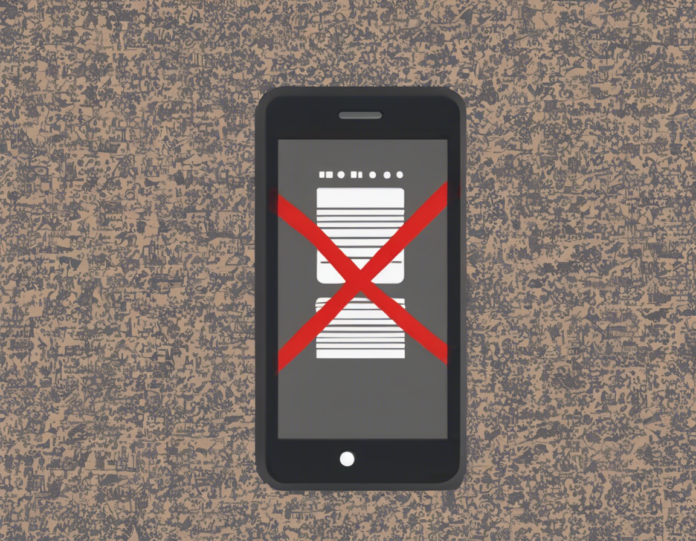In today’s fast-paced world, it has become increasingly difficult to disconnect from the digital realm. Our cell phones have become an extension of ourselves, constantly buzzing with notifications, alerts, and messages. While staying connected has its benefits, it is crucial to also recognize the importance of switching off from your cell phone and taking a break from the constant stream of information.
In this article, we will explore the impact of excessive cell phone usage on our mental health, relationships, and overall well-being. We will also provide practical tips on how to disconnect from your cell phone and find a healthy balance between staying connected and taking time for yourself.
The Impact of Excessive Cell Phone Usage
1. Mental Health
Excessive cell phone usage has been linked to various mental health issues, including anxiety, depression, and increased stress levels. The constant need to check our phones and respond to messages can lead to burnout and overwhelm, affecting our mental well-being.
2. Relationships
Our cell phones can also have a negative impact on our relationships. Constantly being on our phones can lead to distracted and disconnected interactions with our loved ones. It can also create barriers to effective communication and quality time spent together.
3. Productivity
While cell phones offer convenience and connectivity, they can also be a major distraction. The constant notifications and social media updates can disrupt our focus and decrease productivity. It is important to find a balance between using our phones for work and limiting distractions to enhance our efficiency.
How to Disconnect From Your Cell Phone
1. Set Boundaries
Establish designated times to check your phone and respond to messages. Create phone-free zones in your home, such as the dining table or bedroom, to promote uninterrupted quality time with your family.
2. Use Airplane Mode
Utilize the airplane mode feature on your phone to disconnect from incoming calls and messages without fully powering off your device. This can help you carve out undisturbed time for yourself or engage in activities without distractions.
3. Prioritize Face-to-Face Interactions
Make an effort to prioritize face-to-face interactions over digital communication. Engaging in real-time conversations can strengthen your relationships and create meaningful connections that go beyond text messages and social media interactions.
4. Engage in Hobbies
Find activities that you enjoy and engage in them offline. Whether it’s reading a book, going for a walk, or practicing a hobby, dedicating time to unplugged pursuits can help you recharge and relax without the constant presence of your cell phone.
5. Practice Mindfulness
Incorporate mindful practices into your daily routine to stay present and grounded. Take moments to breathe deeply, observe your surroundings, and disconnect from the digital noise to cultivate a sense of calm and clarity.
Frequently Asked Questions (FAQs)
1. How does excessive cell phone usage impact sleep quality?
Excessive cell phone usage before bedtime can disrupt sleep patterns due to the blue light emitted from screens. It is recommended to limit screen time before bed to promote quality sleep.
2. Can disconnecting from my cell phone improve my mental health?
Taking breaks from your cell phone and setting boundaries on usage can help reduce stress and anxiety levels, leading to improved mental well-being.
3. How can I overcome the fear of missing out (FOMO) when disconnecting from my cell phone?
It is important to prioritize your well-being and mental health over the fear of missing out. Remind yourself that taking breaks from your phone is essential for your overall health and balance.
4. What are some strategies to reduce screen time for children and teenagers?
Encourage unplugged activities, such as outdoor play, reading, and creative endeavors, to limit screen time for children and teenagers. Setting clear boundaries and role modeling healthy screen habits can also be effective.
5. How can I create a healthier relationship with my cell phone?
To create a healthier relationship with your cell phone, consider setting limits on usage, practicing mindfulness, and engaging in offline activities that bring you joy and fulfillment. Prioritize human connections and self-care to strike a balance between staying connected and disconnecting when needed.
In conclusion, while cell phones have revolutionized the way we communicate and stay connected, it is crucial to prioritize our mental health and well-being by disconnecting from our devices and taking time for ourselves. By setting boundaries, practicing mindfulness, and engaging in offline activities, we can find a healthy balance between staying connected and switching off to nurture our overall well-being.
